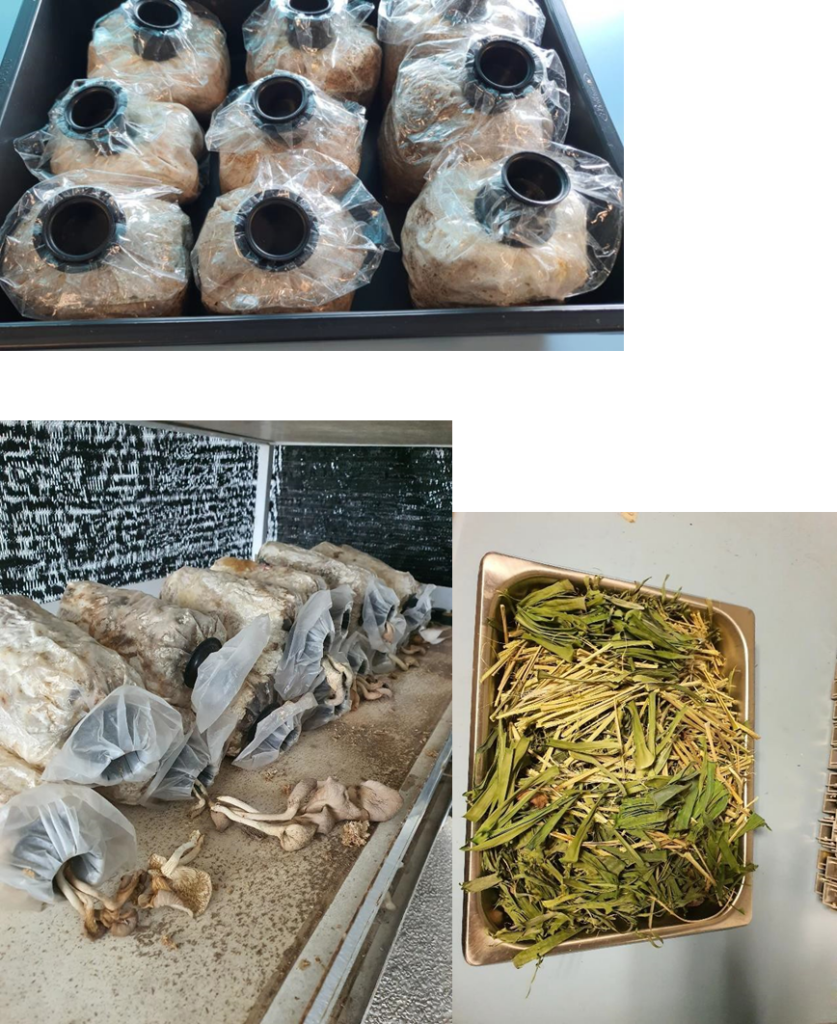
In an exciting stride towards sustainable agriculture, a team student named THE CATALYST from the Faculty of Resource Science and Technology, Universiti of Malaysia Sarawak (UNIMAS) is pioneering research on using banana waste substrates to cultivate oyster mushrooms.
This innovative project is supported by the UNIMAS Entrepreneurship Centre (UEC) with the technical guidance from our supervisor Dr. Mohamad Hasnul bin Bolhassan from the Faculty of Resource Science and Technology, Universiti Malaysia Sarawak and Dr. Ainaa Nadiah binti Abd Halim from the Faculty of Resource Science and Technology, Universiti Malaysia Sarawak.
The project aims to transform agricultural waste into a valuable resource for mushroom cultivation. Their dedication to fostering innovation and providing expert support has been instrumental in advancing our project.
Preliminary findings suggest that banana waste substrates may offer a cost-effective and sustainable alternative for mushroom cultivation. The banana pseudo-stem and leaves are abundant and rich in nutrients, making them an ideal candidate for mushroom substrates. By optimizing the formulation, we aim to meet the nutritional needs of Pleurotus ostreatus, providing a feasible and practical solution for commercial-scale mushroom cultivation.
Benefits of Banana Waste Substrates
Cost-Effectiveness: Utilizing banana waste reduces the cost of substrates, making mushroom cultivation more affordable.
Sustainability: This approach promotes agricultural waste recycling, contributing to environmental conservation.
Nutritional Value: Mushrooms grown on banana waste substrates are expected to exhibit excellent growth performance and nutrient conversion efficiency.
Our research not only seeks to advance mycoculture practices but also aligns with broader environmental goals. We contribute to responsible consumption and sustainable agricultural practices by converting waste into a valuable substrate. This project showcases how innovative solutions can address both economic and environmental challenges.

Recognizing Achievements

Our team is proud to have made it to the Hult Prize 2024, Mumbai Summits, and to have won the 1st prize in the UNIMAS Innovation Competition. These accomplishments highlight the potential and impact of our research on sustainable agriculture.

Future Directions
As our research progresses, we aim to expand the scope of substrates tested and refine the formulations to further enhance yield and quality. We envision a future where banana waste substrates become a standard in mushroom cultivation, promoting sustainability and economic viability for farmers. Additionally, we aim to establish a circular recycling process, where the spent substrate from mushroom cultivation can be further utilized as compost or animal feed, ensuring a zero-waste approach and enhancing the sustainability of the entire agricultural cycle.
Prepared by Darren Lim Wei Jie from the Faculty of Resource Science and Technology, Universiti Malaysia Sarawak (UNIMAS).